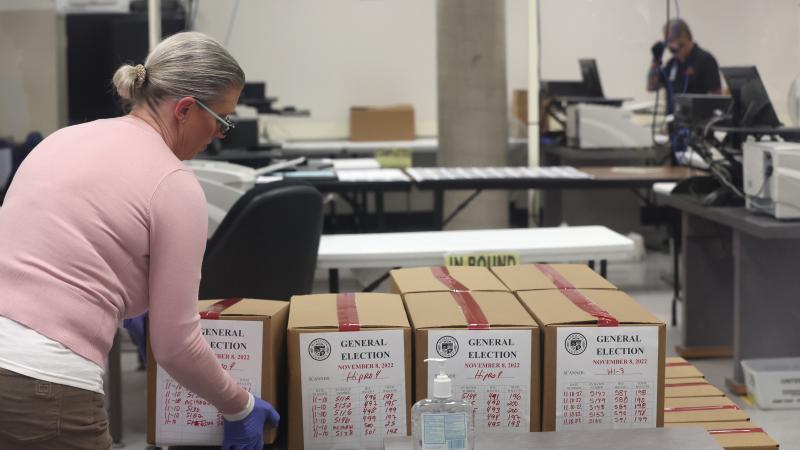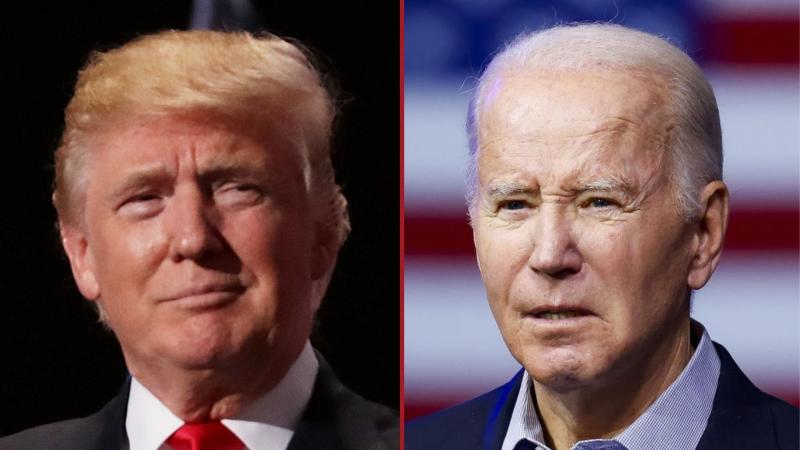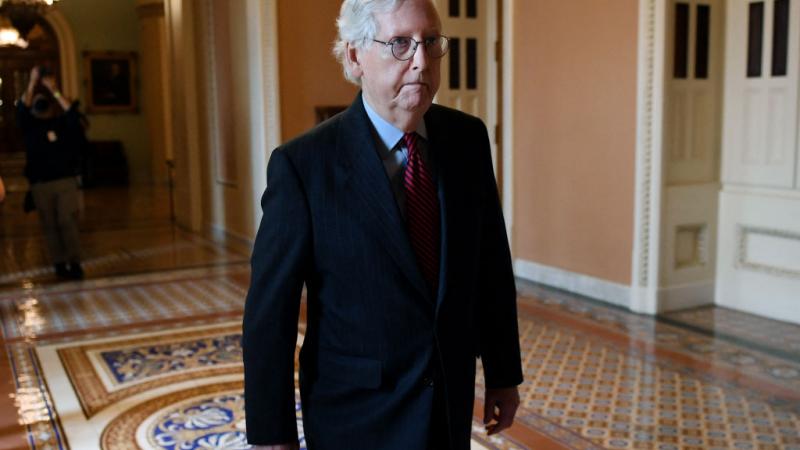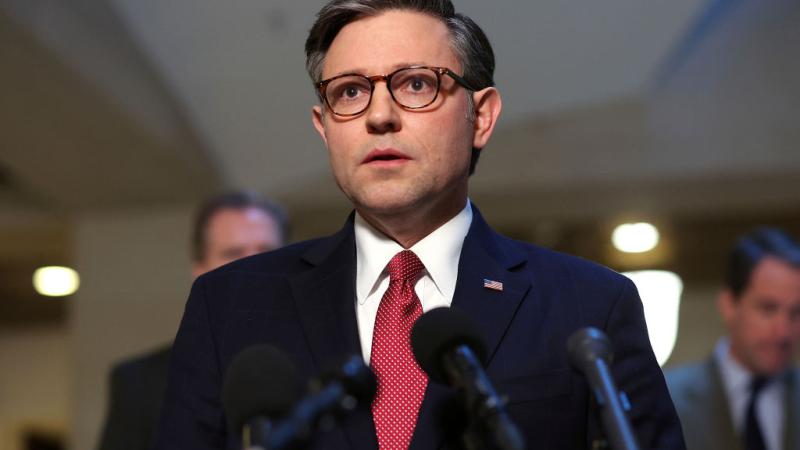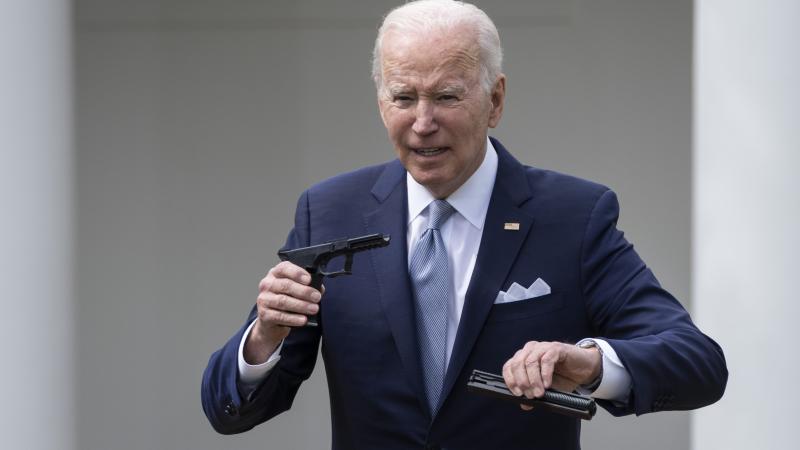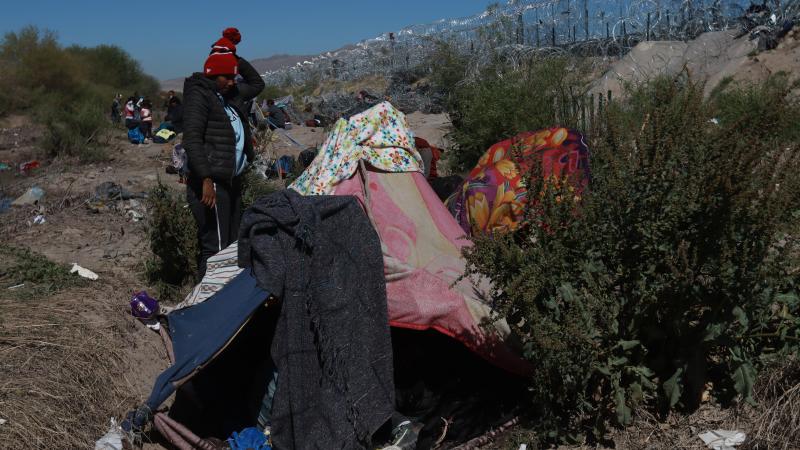Private consortium that flagged 2020 election 'misinformation' defends its work with feds
Election Integrity Partnership denies it aimed to "decide what is or isn’t 'misinformation,'" says DHS never filed misinformation reports through its system. New statement doesn't mention State Department's misinformation reports.
A private consortium that played a major role in censoring social media content during the 2020 election has acknowledged anew it collaborated closely with two federal Cabinet agencies and state and local election officials on the project, but said most of its requests to Big Tech came from its own research.
The Election Integrity Partnership issued a lengthy statement Wednesday after a series of reports by Just the News on the breadth of its efforts to censor purported misinformation, which impacted nearly 22 million tweets, 4,800 URLs, 20 news organizations, several lawmakers and candidates and two dozen influencers, with a 35% success rate for content removal, labeling or "soft-blocking."
"Unfortunately, not everything written or said on TV about us has been correct," the statement says, claiming the consortium's researchers including students "have received threatening emails and social media messages."
It denied the consortium ever attempted to do fact-checks or "decide what is or isn't 'misinformation'" as opposed to identifying attempted election interference and delegitimization of results. The Hunter Biden laptop story, for example, is not "in scope" for its project.
"To be clear, EIP did not send any reports of false rumors or disinformation to social media companies on behalf of the Department of Homeland Security or the Cybersecurity and Infrastructure Security Agency," the DHS component that was instrumental in the consortium's creation.
"CISA's relationship with EIP was reviewed and approved by Trump Administration attorneys as compatible with CISA's congressionally approved authorities," the statement says.
The consortium's after-action report does not say that CISA, whose interns were credited with the idea for the consortium, was prevented from filing "tickets" through the system to flag content and ask for action from Big Tech, however.
"Government and civil society partners could create tickets or send notes to EIP analysts, and they used these procedures to flag incidents or emerging narratives to be assessed by EIP analysts," that March 2021 report says.
It also noted that CISA's Countering Foreign Influence Task Force "aided in the reporting process" for the consortium "and in implementing resilience efforts to counter election misinformation."
The new statement tellingly leaves out any mention of the State Department, whose Global Engagement Center did file tickets through the system, according to the after-action report.
About four in five tickets were filed by the consortium's own analysts, who also reviewed tickets from its external partners. Consortium leaders determined whether reports were in scope with its mission.
The DHS-funded Center for Internet Security, which runs the Elections Infrastructure Information Sharing and Analysis Center, was next with 16% of tickets, according to the after-action report, which said most of those "originated from election officials." The new statement says several involved Arizona's "Sharpiegate," and those posts were "possibly labeled or demonetized."
The consortium disclosed new details on how many reports of misinformation were filed by certain "civil society collaborators," and the content of those reports.
The Democratic National Committee, for example, filed four reports: "a claim about voting-by-mail that received little traction and was closed without action," a political ad with "false claims about vote-by-mail fraud," a series of "spammy content farms with extreme political content" that were never referred for action, and an ad suspended by Facebook that "incorrectly claimed that completed ballots had been thrown out."
The NAACP referred a single claim, that the Proud Boys were sending "threatening emails" on behalf of President Trump, which the consortium determined to be a hoax.
"We immediately sent our analysis to the team at CISA, who forwarded it to the FBI and other government agencies," the statement says. "Soon afterward, a united team of leadership from across the Trump Administration announced that this campaign had originated in Iran, and two Iranian individuals have since been indicted for attempting to interfere in the U.S. election."
While none of its collaborators came from the political right, the consortium claimed for the first time that the Republican National Committee had been invited to participate but did not respond.
Though its list of "repeat spreaders" of misinformation is all conservative influencers, including Sean Hannity, Mark Levin, Jack Posobiec and Charlie Kirk, the consortium said it did not intend to target conservatives.
"We reported on election rumors and disinformation targeting and spreading within Democrat-voting audiences," but its research determined "far-right influencers catering to Trump-voting audiences" were responsible for "the vast majority of false rumors and disinformation," the statement says.
The "repeat spreaders" lists of influencers and media organizations, which included Just the News, "were not provided directly to any partner organization," though they were included in a recent peer-reviewed paper "as well as a statement to the U.S. House Select Committee on the January 6 Attack on the United States Capitol."
Regarding the flood of federal grants the consortium's members received from the Biden administration following the 2020 effort, the statement says their researchers "have a long track record of receiving research funding from the National Science Foundation to study online rumoring and disinformation."
They received an NSF grant to "study online disinformation that preceded the formation of the EIP" and now another one specifically supporting this research, according to the EIP, which denies the new grants were "rewards" for censorship.
Alluding to members of Congress who have threatened legislation and even litigation in response to the consortium's work, the consortium said, "Several of our leaders have testified repeatedly on these topics, and we would be happy to return to Congress to discuss our work."


